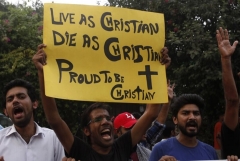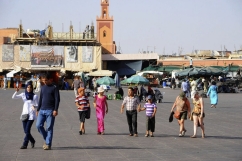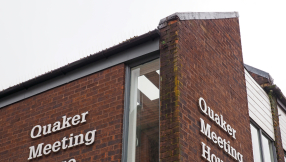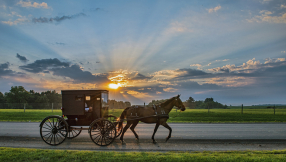Muslims are converting to Christianity in northern Nigeria amid rapidly rising levels of Christian persecution, which has seen more than ten thousand Christians killed in five years, according to a new report released today.
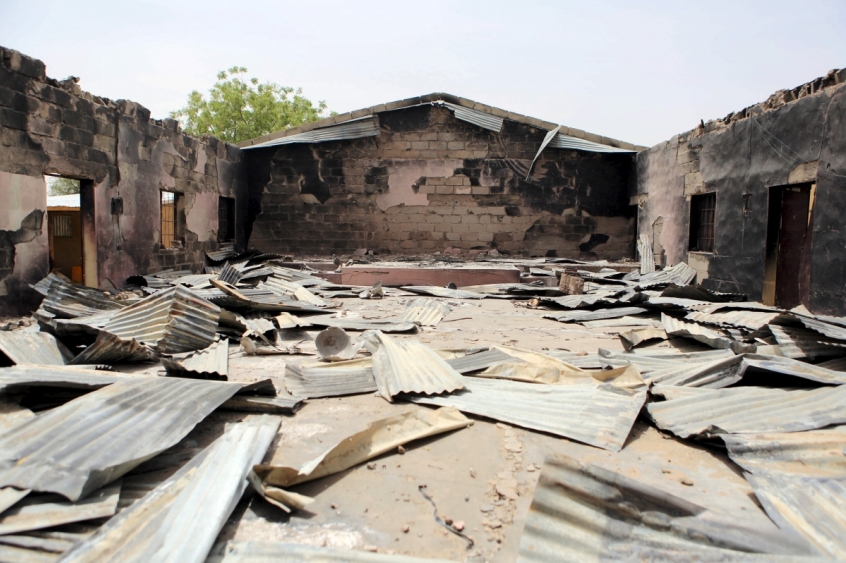
While much media attention has been focussed on Islamic State and the plight of persecuted minorities in the Middle East, 11,500 Christians in northern Nigeria were killed in five years between 2006-2014, and 13,000 churches were destroyed, forcing 1.3 million Christians to flee to safer areas of the country.
In 2014, Boko Haram, an Islamist militant group active mainly in northern Nigeria, was named the world's deadliest terror organisation by the Global Terrorism Index.
In 2015, the number of Christians violently killed in the country increased by 62 per cent, to 4,028 people, and 198 churches were attacked, according to persecution charity Open Doors' 2016 World Watch List.
A new report, Crushed but not defeated, the impact of persistent violence on the Church in Northern Nigeria, by Open Doors and the Christian Association of Nigeria (CAN) reveals a horrific degree of violence against Christians, but also glimmers of hope from a Church that is determined to remain strong.
CAN, Nigeria's largest confederation of churches, has committed to revive the Church in northern Nigeria, both by grass roots action and by advocacy. It is calling on the UN and other international bodies to engage with the plight of Christians who feel long abandoned.
Marginalisation, discrimination and targeted violence
While Nigeria is technically a secular federal state with religious freedom enshrined in its constitution, "the reality in Northern Nigeria is radically different," said Lisa Pearce, chief executive of Open Doors UK and Ireland.
"For decades, Christians in the region have suffered marginalisation and discrimination as well as targeted violence. This is happening not only in the Sharia states of the Far North where the pressure of Islam is hard felt, but also in the non-Sharia Middle Belt states where Sharia has not been formally implemented."
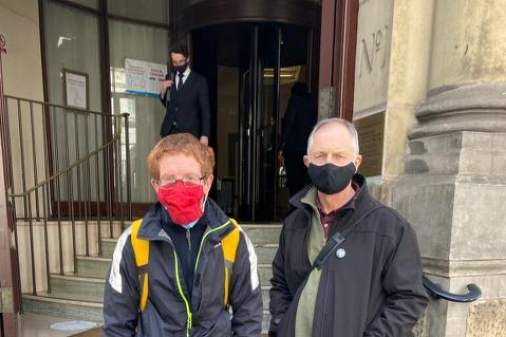
Crucial to understanding this situation is that there are three distinct perpetrators of persistent violence against Christians in northern Nigeria, united around one cause: "defending northern Muslims' interests, Muslim identity and the position of Islam," the report says.
These perpetrators are not only proponents of radical Islam, such as Boko Haram, but the northern Muslim political and religious elite and the Muslim Hausa-Fulani herdsmen are also major perpetrators of religious violence against Christians.
This has lead to a diaspora of Christians from certain areas, the Christian presence becoming "virtually extinct or substantially diminished", and a break down in social cohesian between Muslims and Christians.
"Mutual trust has disappeared and Muslims and Christians have become increasingly separate groups, clustering together in town suburbs and distinguished rural areas," the report says.
This three-pronged attack against Christianity has left Christians in the north without refuge, unable to conduct themselves in public life or exert public influence.
"Many Christians say they face harassment, hatred, marginalization, intimidation and violence," the report says. "They have very limited freedom to worship and to build churches. They have no real voice in public media, have hardly any access to government positions for employment and are barely represented in local politics. Young Christians feel discrimination at school."
Three quarters of the 122 church leaders Open Doors interviewed said the outlook is bleak.
Renewed faith
But while the report highlights that the Church is hardpressed in northern Nigeria, it remains present.
Many churches are emptying as congregants flee violence and persecution, but those who leave are not abandoning their faith; instead getting involved in church in slightly safer contexts. Although those living in northern Nigeria are unable to participate in politics and are struggling even to provide a livelihood, there has been an increase in Christian political engagement with politics in the Middle Belt states of the country.
Those who are choosing to stay are experiencing a renewed fervour in their faith, according to the report, and some Christians reported that their churches in the north are growing as Muslims convert to Christianity. The report cited reasons including many Muslims having dreams of Jesus.
"Many among the Muslims want to become Christians, but they are afraid of being killed or pressured by fellow Muslims," the report quoted one interviewee as saying.
But while there are glimmers of hope on the ground, a response is required from those with higher political power, such as Nigeria's government, the UN and other Western governing bodies.
"Policy makers in churches, governments and society in Nigeria and in the international community should become aware of the scope and impact of the violence," the report recommended.
"There needs to be a united and proper response to end the violence and restore a situation in Northern Nigeria where Muslims and Christians alike can live together, exercise their human rights and have equal access to education, work and property and will have the freedom to worship."






